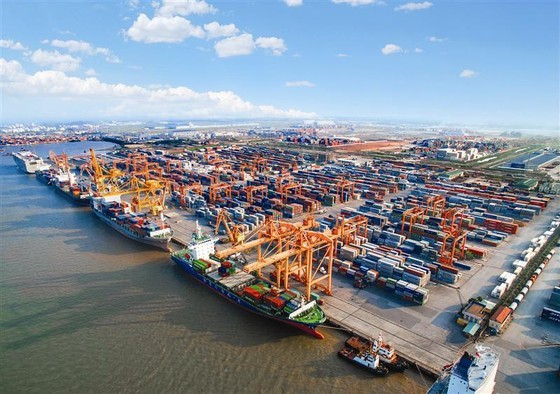 |
Tan Vu Port - Hai Phong is being greatly affected by alternating power cuts |
The Vietnam Logistics Business Association, the Vietnam Ship Agents, Brokers And Maritime Services Providers Association, and the Vietnam Shipowners Association have just proposed to Vietnam Electricity to supply electricity to ports in the Northern City of Hai Phong to help shipping companies reduce port charges because their ships have to wait at ports due to power outages.
According to the associations, most of the loading and unloading equipment at the port is operated by electricity, so the rotating power cuts in the past time in Hai Phong City have caused many difficulties for port operations. Most of the power outages were so sudden that businesses could not arrange their work with each temporary power shutdown lasting more than 6 hours.
These rolling blackouts caused businesses to pay huge port demurrage fees as their container ships were docking in ports longer than their allotted time. Currently, a day's ship at a port costs about $30,000 - $50,000 depending on the type and size of the ship. Moreover, ships’ docking long in Hai Phong City will greatly affect other ports in the ship's journey, as well as damage of commercial goods. The associations suggested that special priority should be given to the power supply for ports.
In case of power failure due to an incident or force majeure event, competent agencies should notify the ports of the estimated time of resumption of power within 24 hours according to the provisions of the Electricity Law.
At the same time, the electricity authority needs to send a written explanation to the ports within 8 hours immediately which will be used by the port to liaise with customers and shipping lines.
In the case of rolling power cuts, the associations recommend responsible agencies need to have a specific plan which should be sent to the ports at least 5 days in advance on three consecutive days on the mass media, or send a written document to the port.
The associations also suggested that the power sector should have solutions to support and compensate for damage to the port such as supporting investment funds, and costs of maintaining the operation of substations and generators.
Additionally, the electricity sector must give the port financial support because ships must dock at the port longer than its allotted time due to power failure and there should be a policy to subsidize electricity for the port to compensate for the damage caused by power cuts.
The associations also proposed to have incentive and preferential policies for port and logistics enterprises pioneering in technology application, investment and use of renewable energy and clean energy.
























